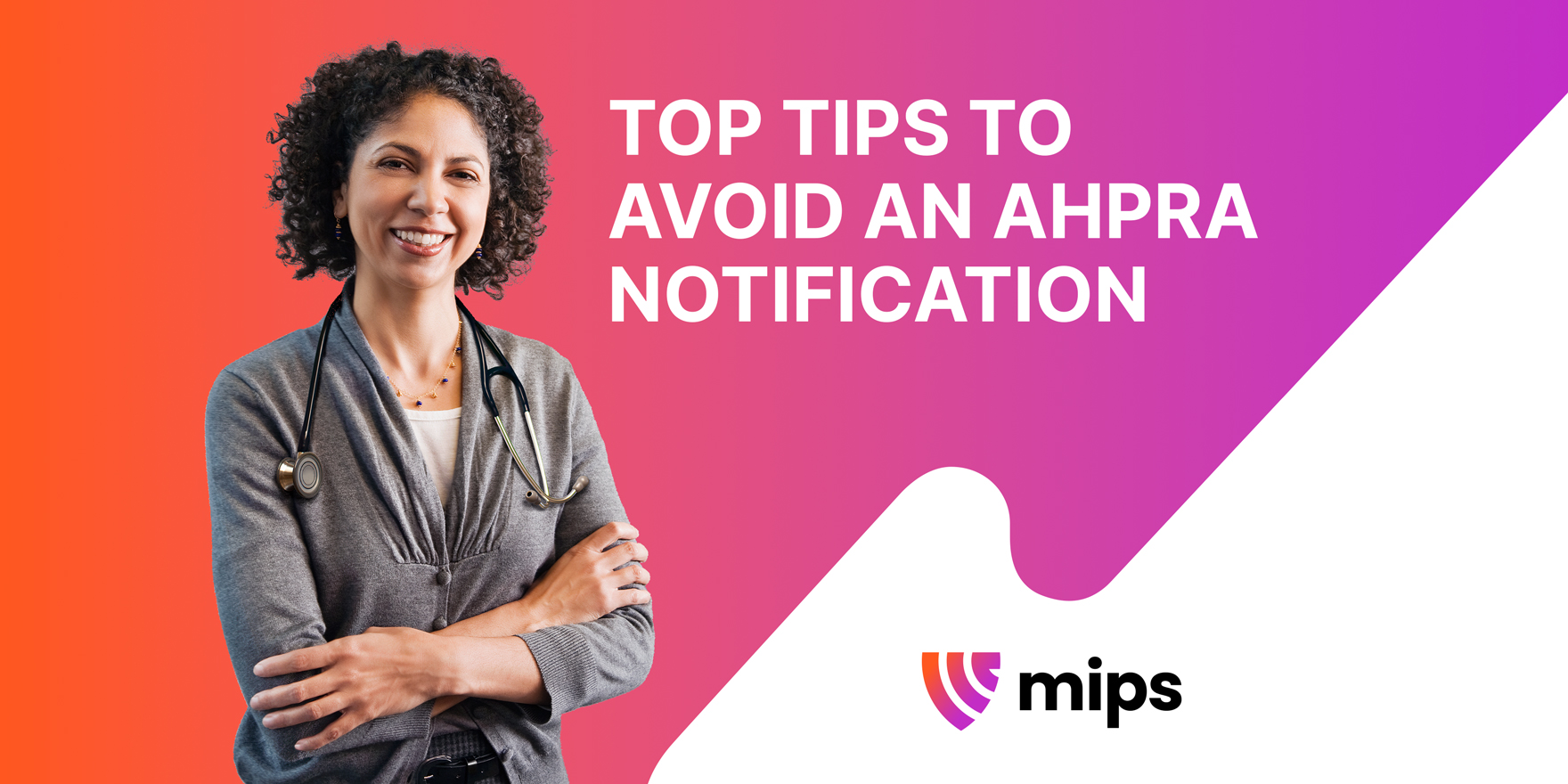These top tips will help you handle your response sensitively and take back control.
Receiving a notification from Ahpra can be a distressing event for health practitioners, that can also adversely impact reputation and career.
Being on the receiving end of an Ahpra notification is usually unexpected and unwelcome, but handling the response sensitively can help you take back control.
Here are a few tips to help health practitioners minimise the risk of notifications:
The importance of documentation
Always keep thorough and detailed clinical records of all consultations with patients. Clinical records form the basis of good communication with your patients because all other providers involved in your patients’ care can view your notes. Poorly written, vague records can have an adverse effect on decision and affect the quality of care. At the same time, medical records are also legal documents and can be used in court. What you document can be scrutinised legally, hence the need to be meticulous and accurate.
Communication is key
Maintain clear communication with patients and colleagues. Document all conversations and consider following up important conversations by email. This can act as evidence of what was communicated.
Be transparent and honest
Transparency and honesty are paramount if something goes wrong. An admission of human error and an apology can go a long way with patients but be careful to not actively dissuade aggrieved patients if they threaten to make a notification. Also take care in your apology where it could be misconstrued as an admission of liability.
Maintain a close network
Seek the advice of colleagues or mentors if you are unsure of how to proceed in a situation. This may help you defend your decision-making. Asking for help can prevent a situation escalating out of control.
Respect professional boundaries
Be aware of where your boundaries lie with patients and colleagues. If you find that a professional doctor-patient relationship is evolving into a personal one, have steps in place to terminate the relationship.
Use a chaperone where appropriate
A chaperone is an impartial observer present during an intimate examination of a patient and is there to support the patient, as well as the doctor. Be sure to obtain consent from the patient before using a chaperone and remember to explain the role of the chaperone during the examination. Having a chaperone present can be critical when defending allegations of sexual misconduct.
Be informed of Medicare requirements
Be aware of requirements regarding the billing of items, as they frequently change, so that you are using the item numbers correctly. Regularly review Medicare updates and engage in open discussion with colleagues. Implement best practice in your Medicare billing to minimise risk and ensure Medicare billing accuracy.
Don’t self-prescribe or prescribe for friends and family
Self-prescribing is unlawful in some Australian jurisdictions. In addition, the various professional codes of conduct recommend that prescribing for self, family and friends be avoided wherever possible. If you have to prescribe for family, be prepared to justify your decision. Make a clear record of what you have done, and advise the patient’s GP in writing, including your clinical reasoning (unless the patient objects).
Use social media with caution
Be mindful that it can be difficult to separate personal and professional social media profiles. Health practitioners are obliged to ensure their views are consistent with public health messaging. Abide by the rule that anything you release into the worldwide web is permanent and available for public consumption. Views expressed in your personal life may or may not be consistent with evidence-based material but might not necessarily be consistent with public health messaging.
Take care of your own health
Engage regularly with a GP/psychiatrist/psychologist to ensure you are prioritising yourself. This can help if concerns are ever raised that you may have a health impairment which is affecting your practise. This can be the difference between sitting on the sidelines and continuing to practise.
Take advantage of your MDO
Seek advice from your medical defence organisation (MDO) before responding to any notification. They are there to support you with any medico-legal advice.
Why join MIPS?
At MIPS we are more than an indemnity provider. As a member-based not-for-profit organisation, we are committed to protecting you and your professional reputation. Our cover of up to $20 million supports where, how, and what you practise.
As part of your MIPS membership, you can also access our medico-legal advice and support 24/7, as well as our range of education features such as on-demand education, webinars by experienced healthcare practitioners, and other CPD accredited risk education.
Interested in joining MIPS?
Being a MIPS member gives you the security and confidence you need to protect your purpose as a healthcare practitioner. Contact us with any questions about membership on 1800 061 113 or info@mips.com.au.
Medical Indemnity Protection Society ABN 64 007 067 281 | AFSL 301912
All information on this page is of a general nature only and is not intended to be relied upon as, nor to be a substitute for, specific legal or other professional advice. No responsibility for the loss occasioned to any person acting on or refraining from action as a result of any material published can or will be accepted by MIPS.
You should seek legal or other professional advice before relying on any content, and practise proper clinical decision making with regard to the individual circumstances.
Information is only current at the date initially published.
If in doubt, contact our claims and 24-hour clinico-legal advice and support team on 1800 061 113.
You should consider the appropriateness of the information and read the Member Handbook Combined PDS and FSG before making a decision on whether to join MIPS.


